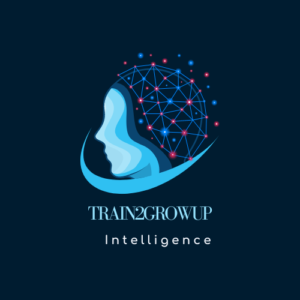Project Management Overview
PMP training course covers core topics essential for a project management professional. It includes topics such as emerging trends, new technologies and practices, and core competencies required from a project manager. With an emphasis on strategic and business knowledge, the course also highlights the role of a project manager.
Why Join this Program?
Joining a “Project Management” program can be highly beneficial for your career and professional development. Here are several reasons why you should consider enrolling in such a program:
- Enhanced Career Opportunities
- Increased Earning Potential
- Skill Development
- Global Recognition
- Improved Project Success Rates
- Leadership and Team Management
- Adaptability and Flexibilitys
- Structured Approach to Projects
- Contributing to Organizational Success
Advantages Project Management in Real-life
Joining a “Project Management” program can be highly beneficial for your career and professional development. Here are several reasons why you should consider enrolling in such a program:
- Improved Business Decision-Making
- Enhanced Financial Reporting
- Streamlined Operations Management
- Effective Marketing Analysis
- Real-Time Customer Support Monitoring
- Enhanced Data Visualization
- Improved Decision-Making
- Advanced Analytics
- Ease of Use
Power BI Program Details
Project management plays a crucial role in real-life scenarios, offering a range of advantages that lead to successful outcomes across various industries. By applying project management practices in real life, individuals and organizations can achieve more consistent, successful outcomes, regardless of the industry or type of projects
Learning Path:
- Project Management is the discipline of planning, executing, and overseeing a project from inception to completion.
- It involves coordinating resources, managing teams, and ensuring that objectives are met within specified time, budget, and scope.
- Effective project management is essential across industries, as it helps organizations achieve their goals.
- Project management ensures that projects are completed efficiently, successfully, and to the satisfaction of all stakeholders.
- Structured Approach
- Goal-Oriented
- Resource Management
- Stakeholder Engagement
- Adaptability and Flexibility
- Time & Budget Management
- Continuous Improvement
- Foundation
- Strategic Alignment
- Project Benefits and Value
- Organization Culture and Change Management
- Project Governance
- Project Compliance
- Planning the Project
- Defined Scope
- Measured Schedule
- Identify Resources
- Parking Budget
- Involving Risk
- Quality Check
- Integration Plans
- Craft Your Leadership Skills
- Create a Collaborative Project Team Environment
- Empower the Team
- Support Team Members Performance
- Communicate and Collaborate with Stakeholders
- Training, Coaching and Mentoring
- Manage Conflict
- Implement Ongoing Improvements
- Support Team Performance
- Evaluate Project Progress
- Manage Project Issues and Impediments
- Manage Project Changes
- Closure of Project
- Benefit Realization
- Knowledge Transfer
GenAI in Project and Quality Management
- Historical Evolution of AI
- AI Landscape Today
- Key Milestones in AI Development
- Understanding Generative Models
- Core Principles of Generative AI
- Generative vs. Discriminative Models
- Exploring Opportunities in Project and Quality Management.
- Challenges and Solutions
- Business Impact of Generative AI in Projects Management.
- Project Scope Optimization
- Agile Project Planning Techniques
- Resource Allocation Strategies
- Real-time Decision Support Systems
- Adapting to Dynamic Project Changes
- Strategic Decision-making with Generative AI
- Predictive Risk Analysis and Mitigation
- AI-enhanced Risk Identification
- Agile Risk Management Strategies
- Implementing Automated Quality Assurance
- Continuous Monitoring of Quality Metrics
- AI-driven Quality Control Solutions
- Anticipating and Preventing Defects
- Root Cause Analysis with Generative AI
- Continuous Improvement in Quality Assurance
- AI-driven Key Performance Indicators (KPIs)
- Real-time Analytics for Project Performance
- Strategic Decision-making through Analytics
- Overview of Current Trends
- Integration of Generative AI in Current Projects
- Navigating Emerging Technologies
- Industry Landscape and Future Projections
- Adapting Projects to Technological Shifts
- Preparing for Future Challenges and Opportunities
- Choosing the Right Tools and Frameworks
- Showcasing Successful Implementations
- Addressing Challenges in Real-world Scenarios
- Real-world Experiences in AI Implementation
- Seizing Opportunities in AI-driven Project Environments
Skills Covered
- Work breakdown structure
- Project cost estimating
- Leadership
- Gantt charts
- Engineering economics
- Cost management
- Mathematical project scheduling models
- Resource allocation


